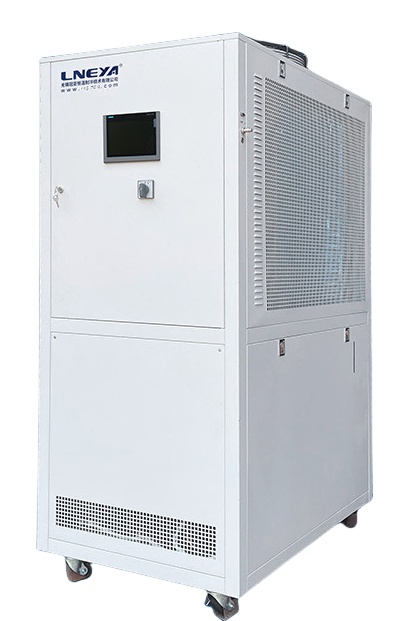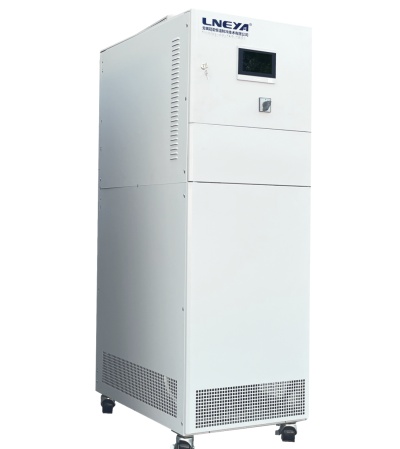ACHEMA 2024
1522024 ACHEMA Biochemical Technology Exhibition in Frankfurt, Germany ACHEMA 2024Germany Ahma Biochemical Technology ExhibitionJune 10-14, 2024Ludwig-Erhard-Anlage 1, Frankfurt, GermanyBooth number: 6.1-C55 ,
View detailsGet chiller related information TCU Heating Circulators Recirculating Chiller 产品分类菜单
Mechanical Chillers: Essential for Precise Temperature Control
Mechanical chillers play a critical role in maintaining optimal temperatures in a variety of industrial and commercial applications. These systems are designed to provide precise cooling, ensuring efficiency and quality in processes that are sensitive to temperature fluctuations.

Types and Technologies of Mechanical Chillers
Mechanical chillers utilize different compressor technologies to achieve cooling:
Scroll Compressor Chillers: Known for their quiet operation and high efficiency at part loads, scroll compressor chillers are popular for their space-saving design and low maintenance requirements.
Screw Compressor Chillers: These chillers provide continuous capacity modulation and are known for their reliability and durability, making them suitable for large-scale industrial applications.
Centrifugal Chillers: Ideal for large commercial buildings and industrial processes, centrifugal chillers offer high cooling capacities and are known for their efficiency.
Reciprocating Chillers: These chillers offer precise control and are suitable for a variety of cooling demands, from small to large-scale applications.

Absorption Chillers: Operating on a heat source instead of mechanical compression, absorption chillers are an energy-efficient and environmentally friendly option for certain applications.
Applications of Mechanical Chillers
Mechanical chillers find application across various end-use industries:
Chemical Industry: Chillers are used to maintain stable temperatures in chemical reactions and processes.
Food and Beverage: Used in processes such as pasteurization, sterilization, and cooling of beverages.
Pharmaceutical: Crucial for storing temperature-sensitive medical supplies and for processes like drug compounding.
Plastic and Rubber Industry: Chillers are used to cool molds in plastic injection molding and to control the temperature of rubber compounds during manufacturing.
Market Trends and Innovations
The global chillers market is expected to grow through 2030, with a focus on energy efficiency, eco-friendly refrigerants, and technological advancements. Some key trends include:
Advanced Supervisory Controls: Development of advanced controls for chillers to increase building flexibility and support power grid management.

Eco-Friendly Refrigerants: A shift towards more environmentally friendly refrigerants to reduce the environmental impact of chiller systems.
Demand-Response Strategies: Implementation of demand-response strategies to shift loads from peak to off-peak periods, reducing stress on the power grid.
Maintenance and Efficiency
Proper maintenance of mechanical chillers is essential for ensuring their efficient operation and longevity. Regular inspections, cleaning of heat exchangers, and monitoring of refrigerant levels are crucial tasks for chiller maintenance. Energy efficiency can be further enhanced by using chillers with variable-speed drives and smart controls.
Conclusion
Mechanical chillers are indispensable in a variety of industries where precise temperature control is required. With ongoing innovations in technology and a growing focus on sustainability, these chillers are becoming more efficient and environmentally friendly. The global market for mechanical chillers is expected to grow, driven by the need for advanced temperature control solutions. Regular maintenance and staying informed about the latest advancements will ensure that mechanical chillers continue to provide effective cooling for years to come.
2024 ACHEMA Biochemical Technology Exhibition in Frankfurt, Germany ACHEMA 2024Germany Ahma Biochemical Technology ExhibitionJune 10-14, 2024Ludwig-Erhard-Anlage 1, Frankfurt, GermanyBooth number: 6.1-C55 ,
View detailsCompact chillers are space-saving solutions designed for precise temperature control in various industries such as medical, industrial, and commercial applications. These chillers offer high efficiency, easy maintenance, and low environmental impact. They come in different types, including air-cooled and water-cooled, with capacities ranging from a few kilowatts to several hundred kilowatts. The market for compact chillers is growing due to advancements in technology and a focus on energy efficiency and sustainability. Key players in the market are developing innovative solutions to meet the increasing demand for reliable and eco-friendly cooling systems.
View detailsPackaged chiller units are self - contained cooling systems with diverse applications. This article provides an in - depth overview. It defines them as pre - assembled units integrating cooling components. The working principle, involving a refrigeration cycle for heat removal, is explained. Types such as air - cooled, water - cooled, and evaporative - cooled packaged chillers are described. Their advantages, including easy installation, compact design, and cost - effectiveness, are presented. Applications span industries like manufacturing, commercial buildings, and healthcare. Installation and maintenance requirements, along with factors to consider when choosing a unit, such as cooling capacity and energy efficiency, are covered, offering a complete understanding of packaged chiller units.
View detailsSmall chillers are compact cooling systems that provide precise temperature control in limited spaces. This article covers the definition, applications, key considerations, industry trends, and performance features of small chillers. It highlights their importance in industries such as food and beverage, pharmaceuticals, and data centers, and discusses the benefits of choosing a small chiller, including space optimization, energy efficiency, and precise temperature control. The article also touches on the latest advancements in small chiller technology, emphasizing their role in sustainable cooling solutions.
View details